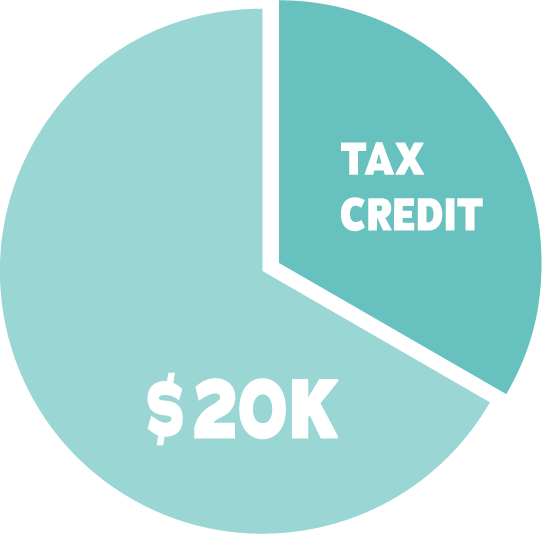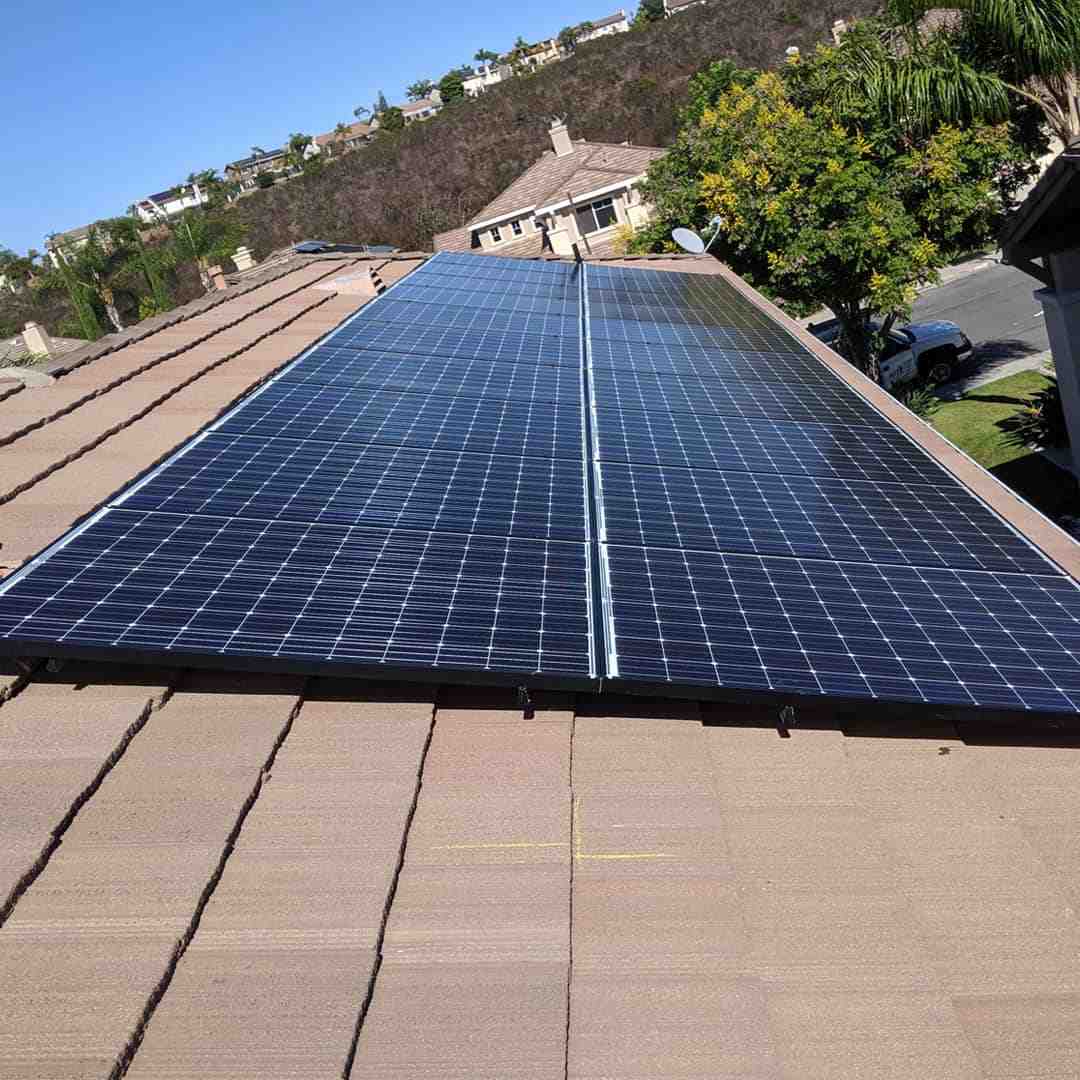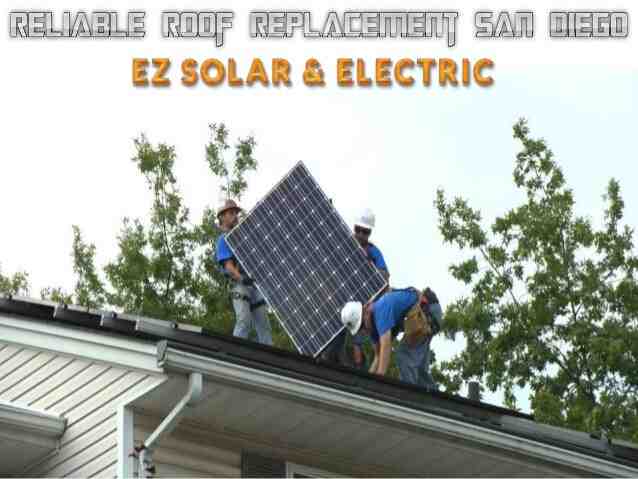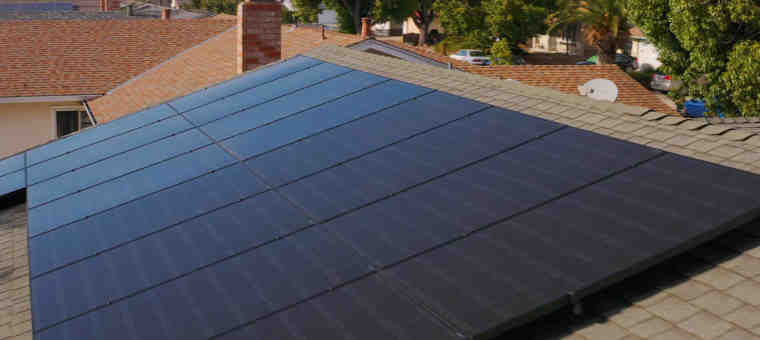Contents
Does solar make sense in San Diego?

Since the sun shines an average of 146 days outside of the year in San Diego, it only makes sense to harness solar energy to power our homes and our vehicles.
How much does solar cost?
The cost of solar has dropped significantly in recent years. A decade ago, an average 6-kilowatt-hour residential solar system could cost more than $ 50,000. Now, the direct cost of a typical home installation ranges from $ 16,200 to $ 21,400, which is an average annual decrease of 62%.
How much do solar panels save per month?
The average home consumes about 909 kWh of energy per month (according to the U.S. Energy Information Administration), so owning solar energy can save you more than 90% on your monthly electricity bills. .
What is the best solar panel?
Based on factors such as efficiency, durability, warranty, price and temperature coefficient, these are the 10 best solar panels for home use:
- LG: The best general.
- SunPower: More Efficient.
- Panasonic: Better for Temperature Coefficient.
- Silfab: Improved Warranty.
- Solar Canada: The Most Affordable.
- Trina Solar: Best Value.
How much does it cost to install solar in San Diego?

As of August 2021, the average cost of solar panels in San Diego, CA is $ 2.82 / W. After a solar panel system size of 5 kilowatts (kW), an average solar installation in San Diego, CA varies by cost from $ 11,985 to $ 16,215, with the average gross price for solar in San Diego, CA coming to $ 14,100.
What are the 2 main disadvantages of solar energy?
The Disadvantages of Solar Energy
- Solar does not work at night. …
- Solar panels are not attractive. …
- You cannot install a home solar system yourself. …
- My roof is not good for solar. …
- Solar harms the environment. …
- Not all solar panels are of high quality.
Can I get solar panels for free?
You may be eligible for a free 3 kilowatt solar system installed in your home. … The Solar Process for low-income households helps eligible families access clean energy at bargain prices by providing free solar systems.
Why you shouldn’t put solar panels on your roof?

When solar panels are installed in homes, they are almost always on the roof. … Your roof is too small: solar panels need the sun to generate electricity. The more they absorb sunlight, the more they generate power.
Do solar panels damage the roof?
Solar panels are not inherently bad for your roof. The potential for solar panels to damage your roof derives from the installation method. … These nails and bolts are typically driven directly from the roof and into the soffit or soffit. Unnecessarily, holes in the roof can lead to leaks that form over time.
What is the catch with solar panels?
Yes, there are (legitimate) installers who will install free solar panels for your home. But the downside is that they require you to sign a solar lease or energy purchase (PPA) contract. These offers attract people with a cost-free way to go about it.
Are solar panels a ripoff?
Solar energy is a proven, clean and affordable source of electricity for your home. Recent improvements in the manufacture of photovoltaic panels used for free, inexhaustible solar energy conversion have made home solar energy a viable option for many consumers, meaning NOT A SCAM.
How do I qualify for free solar in California?

Eligible applicants must have a household income that is 80 percent or less than the average income in the area, own and live in their home, receive electrical service from one of the three investor-owned utilities (PG&E). , SCE, or SDG & E), and live in a home defined as “affordable housing” by California Public Utilities Code 2852.
What is the solar tax credit for 2020?
2020-2022: Owners of new residential and commercial solar systems can deduct 26 percent of the system’s cost from their taxes. 2023: Owners of new residential and commercial solar systems can deduct 22 percent of the system’s cost from their taxes.
Is it worth going solar in California?
The combination of the Federal Solar Tax Discount and retail repurchase rates make solar panels worthwhile in California, with a payback period of less than 6 years. California has a lot of solar energy available and it seems to make complete sense to convert that energy into electricity that we can use.
Does California have a solar tax credit 2020?
Federal Tax Credit For Solar Energy The installation of a solar energy system in 2020 will grant a maximum of 26% solar tax credit in California before falling to 22% in 2021. The federal government will offer: The amount of the tax credit is 26% for photovoltaic systems put into service between 01/01/2020 and 31/12/2020.
Sources :


